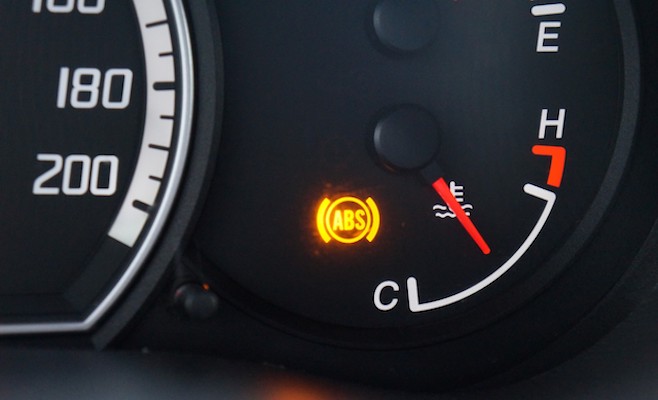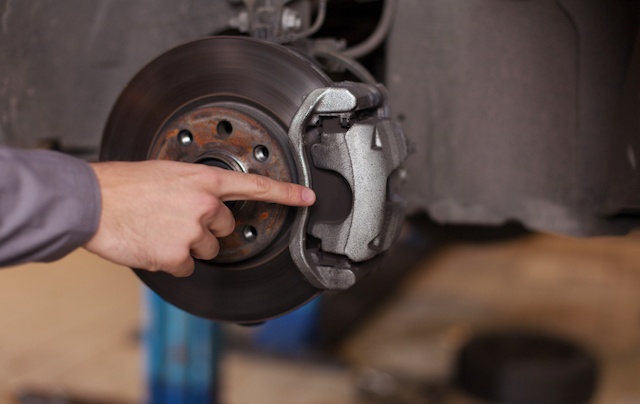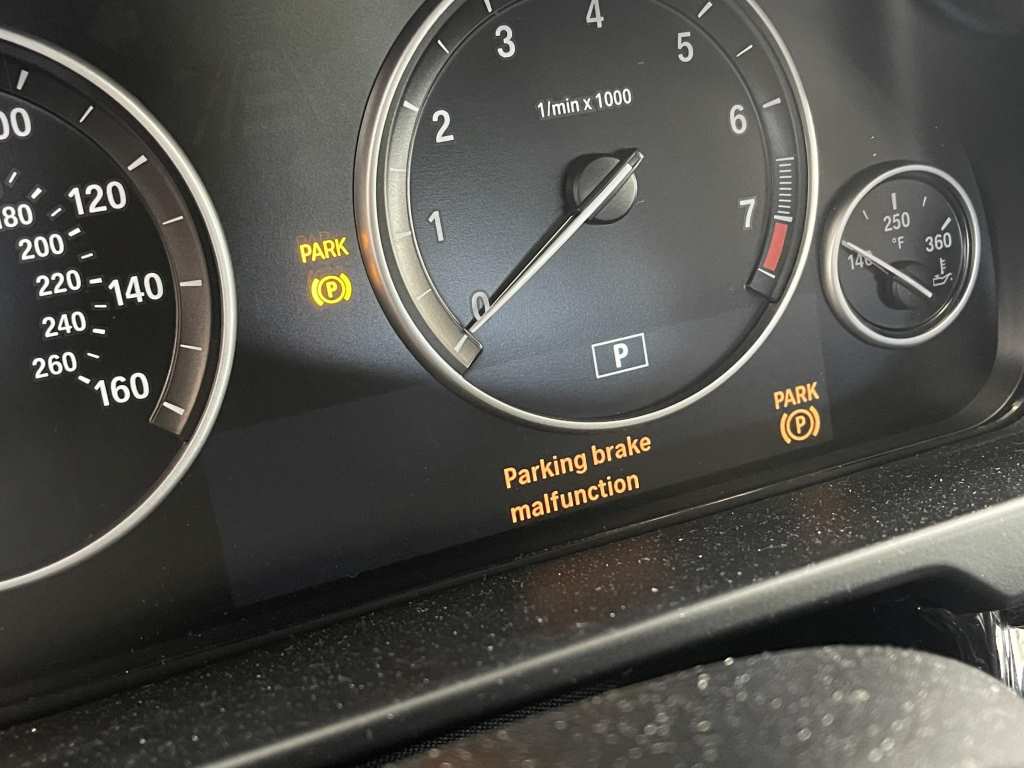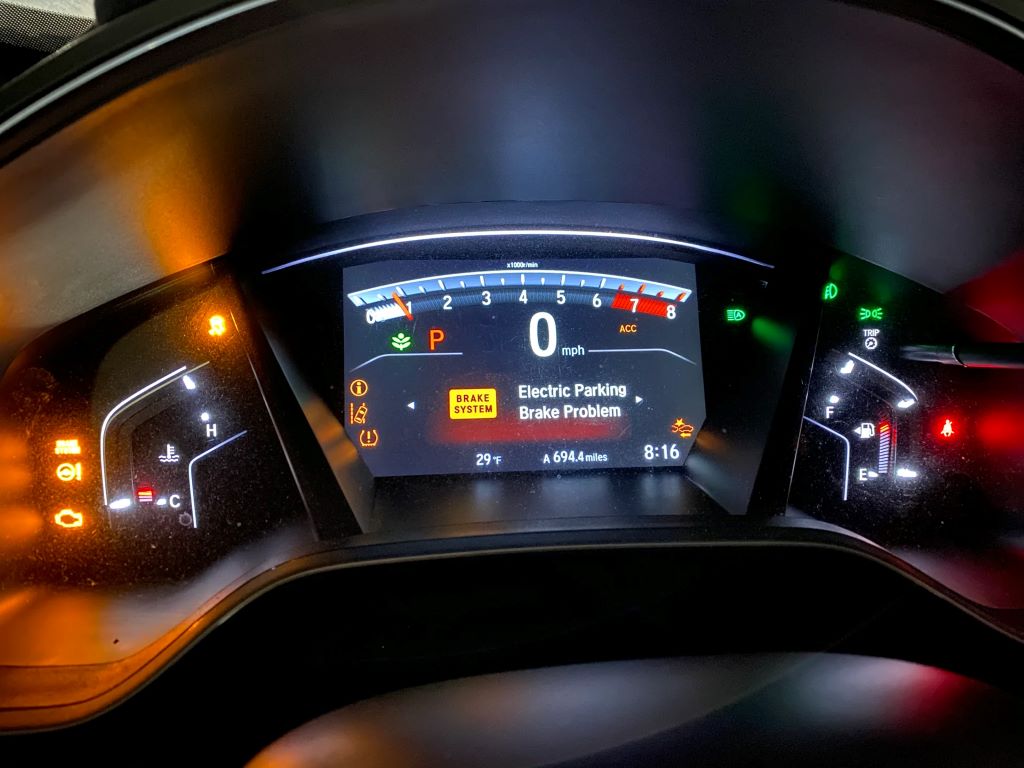In the realm of Honda CR-V ownership, brake system maintenance and potential issues are pivotal for ensuring vehicle safety and operational integrity. Understanding the nuances of Honda CRV brake system problem can aid in preventative care and timely repairs.
Contents
What Are The Honda CRV Brake System Problem
Brake Wear and Tear
The phenomenon of premature brake pad wear in the Honda CR-V, leading to more frequent replacements, can often catch owners by surprise.
This condition can arise from aggressive driving habits, regular travel in harsh environments, or the utilization of softer brake pad materials aimed at minimizing operational noise. Another significant concern is rotor warping, identifiable by vibrations and pulsations during braking.
This warping may result from the excessive heat generated during extended periods of use or from the uneven application of wheel lug nuts, which can distort the rotor’s shape over time, compromising braking smoothness and efficiency.
Brake Noise Issues
Brake noise, particularly squeaking or squealing, signals that the brake pads have reached their service limit, with wear indicators making contact with the rotors to alert the driver.
However, noise can also emerge from dust or debris trapped between the brake pad and rotor, disrupting quiet operation.
A more concerning noise is grinding, which suggests complete wear of the brake pads down to the metal backing plates, necessitating immediate replacement of both pads and rotors to avert further system damage.
ABS (Anti-lock Braking System) Problems
When the ABS warning light illuminates, it indicates potential issues within the system, ranging from sensor malfunctions and low brake fluid levels to more severe problems within the ABS module itself.
Such malfunctions can compromise the effectiveness of the ABS, especially under conditions requiring hard braking or on slippery surfaces, often traced back to faulty sensors, wiring issues, or failures within the ABS control module.

Brake Fluid Leaks
Leaks within the brake system, one of the Honda CRV brake system problem, whether from the wear and tear of seals and hoses or from the master cylinder, can significantly impair braking performance.
The master cylinder plays a pivotal role in generating the hydraulic pressure necessary for braking; thus, leaks here can have profound implications on the system’s integrity and operation, potentially leading to brake failure if not promptly addressed.
Sticking Brake Calipers
Calipers that stick or seize due to corrosion, debris accumulation, or failures in the caliper sliders or pistons can lead to uneven brake pad wear, diminished fuel efficiency, and a tendency for the vehicle to pull to one side during braking.
Corrosion or insufficient lubrication of caliper guide pins further exacerbates wear, impacting brake pad longevity and operation.
Parking Brake Malfunction
Issues with the parking brake not adequately securing the vehicle can stem from adjustment problems, cable stretch or breakage, or faults within the parking brake mechanism itself.
Such malfunctions not only pose a safety risk but can also indicate broader issues within the brake system requiring attention.
What Are The Solutions For The Honda CRV Brake System Problem
Premature Brake Pad Wear
To mitigate this, use high-quality brake pads designed for durability and suited to your driving habits and conditions. Regular inspections can help identify wear early, allowing for timely replacements.
For rotor warping, ensure that brake components are correctly installed and that wheel lug nuts are tightened to the manufacturer’s specifications to prevent uneven pressure and overheating.
If warping occurs, rotors may need to be resurfaced or replaced if they are beyond repair.
Brake Noise Issues
Applying a non-hardening brake grease to the back of brake pads can help reduce noise. Ensure that any debris is cleaned from the brake assembly. If brake pads are worn, replace them along with inspecting the rotors for wear and replacing if necessary.
If you can hear grinding sounds, this indicates that brake pads and possibly rotors need immediate replacement to prevent further damage. Ensure that new pads and rotors are of high quality and compatible with your vehicle’s specifications.

ABS Problems
Start by checking the brake fluid level and topping up if necessary. Use a diagnostic tool to read ABS fault codes, which will indicate specific issues such as sensor failures.
Replace faulty ABS sensors or wiring as required. If the ABS module is faulty, it may need professional repair or replacement.
Brake Fluid Leaks
Inspect the brake system for signs of leaks, paying close attention to the brake lines, hoses, and the master cylinder. Replace any worn or damaged seals and hoses.
If the master cylinder is leaking, it may require a rebuild kit or complete replacement. Ensure all components are correctly installed and that the system is able to remove air pockets after repairs.
Sticking Brake Calipers
Regularly clean and inspect the brake calipers, focusing on the sliders and pistons. Replace caliper guide pins or boots if they show signs of wear or damage.
If a caliper piston is seized, the caliper may need to be rebuilt or replaced. Lubricating the guide pins with suitable brake grease can prevent sticking.
For the caliper guide pin issues, ensure guide pins are clean and lubricated. Replace any corroded or damaged pins and use a high-quality brake grease to maintain smooth operation.
Parking Brake Malfunction
Inspect the parking brake cable for signs of wear, stretching, or damage. Adjust the parking brake according to the manufacturer’s specifications, which may involve tightening or replacing the cable.
If the parking brake mechanism is faulty, it may require cleaning, lubrication, or replacement of parts to restore proper function.

FAQs
1. Can weather conditions affect my Honda CR-V’s brake performance?
Extreme weather conditions can impact brake performance. Cold temperatures might cause the brake fluid to thicken, leading to less responsive braking.
Conversely, high temperatures can lead to brake fluid boiling, resulting in a spongy brake pedal. Regular fluid checks and replacements with the correct type of brake fluid are essential.
2. How does the Honda CR-V’s brake system interact with its safety features like ABS and VSA?
The Anti-lock Braking System (ABS) and Vehicle Stability Assist (VSA) are integral to the Honda CR-V’s safety systems, relying on proper brake function to operate effectively.
Problems with the brake system, such as worn-out brake pads or low brake fluid levels, can impair these systems, indicated by warning lights for ABS or VSA on the dashboard. Addressing brake issues promptly ensures these safety systems function correctly.
3. Can aftermarket parts affect the Honda CR-V’s brake system performance?
Using aftermarket parts that are not OEM (Original Equipment Manufacturer) or of equivalent quality can potentially affect the performance and reliability of your Honda CR-V’s brake system.
It’s crucial to use high-quality parts for replacements or upgrades to maintain optimal brake performance and ensure compatibility with the vehicle’s safety systems.
4. Is there a link between the Honda CR-V’s electronic parking brake (EPB) and brake system problems?
Some Honda CR-V models are equipped with an Electronic Parking Brake (EPB), which might experience malfunctions due to software issues or sensor faults within the brake system.
Problems with the EPB may manifest as difficulty engaging or disengaging the parking brake. In some cases, a software update or sensor replacement can resolve these issues.
5. How do I know if a brake fluid flush is necessary for my Honda CR-V?
A brake fluid flush might be necessary if you notice a decrease in braking efficiency, the brake pedal feels spongy, or the brake fluid appears dirty or contaminated upon inspection.
Brake fluid degrades over time and with use, absorbing moisture which can corrode the brake system components.
6. Can driving habits influence the lifespan of my Honda CR-V’s brake system?
Driving habits significantly impact the wear and tear on your Honda CR-V’s brake system. Frequent hard braking, driving in heavy traffic, and high-speed driving can lead to quicker wear of brake pads and rotors.
Adopting smoother driving habits and allowing for gradual braking can extend the life of your brake components.
7. What should I do if my Honda CR-V experiences brake system problems while driving?
If you encounter brake system problems while driving, such as a loss of braking power or unusual noises when braking, it’s crucial to remain calm and try to safely bring the vehicle to a stop. Use the emergency brake if necessary.
Once stopped safely, avoid driving the vehicle until it has been inspected and repaired by a professional to prevent further damage or accidents.
Check out this video from Motors and Mischief to learn more about warning lights on dash of Honda CRV!
Addressing the Honda CRV brake system problem requires an understanding of the symptoms, causes, and appropriate solutions.
Regular maintenance, using quality parts, and attentive driving habits can help mitigate many common issues, ensuring your vehicle remains safe and reliable on the road!



